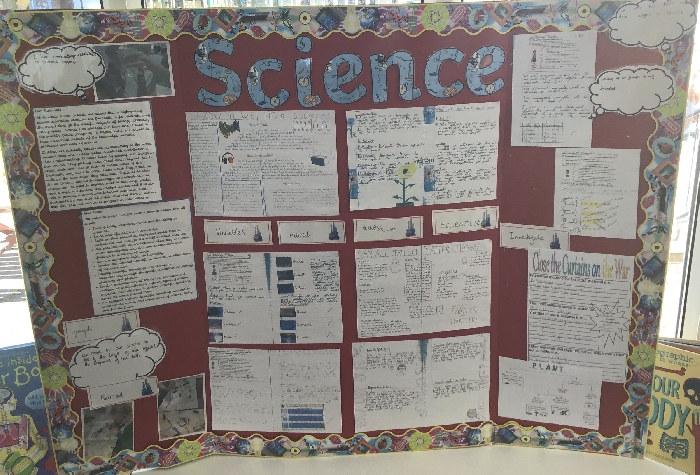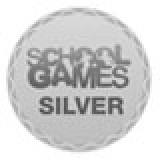Science
Subject Leader: Miss Young and Mrs Whitney
Science at Airedale Junior School aims to develop children’s curiosity and introduce them to the true wonder of the world around them. Science develops children’s independence and ways of working, to enable them to make sense of the world in which they live, through investigation and using and applying their scientific skills.
The Primary Objectives of teaching Science at Airedale Junior School are to:
- Ask relevant questions and recognise that they can be answered in different ways
- Recognise when and how secondary sources can be used
- Identify factors in fair testing including variables and control
- Make decisions about what to observe, what measurements to use and how long to measure them for.
- Choose appropriate equipment to make measurements, using standard units of measure and simple scales accurately and with precision.
- Gather, record, classify and present a range of data in different ways.
- Record data and results using scientific diagrams and labels, keys, tables, bar and line graphs
- Use relevant scientific language to explain my findings and justify scientific ideas.
- Look for different patterns in data and begin to identify evidence that supports or disagrees with scientific ideas.
- Make practical suggestions about how working methods could be improved.
- Use results to identify when further tests and observations might be needed.
The Airedale Science Curriculum
Our curriculum is skills and knowledge based, including full coverage of the National Curriculum which meets the needs of all Airedale Infants and Junior pupils. This takes into consideration the school setting, local, national and international developments.
Our pupils are offered a very wide range of experiences within the curriculum to extend their understanding of themselves and the world in which they live. The children develop skills, attitudes, and values to enable them to become lifelong learners and equip them for the future. The ability to learn is underpinned by the teaching of basic skills, concepts, and values. There should be no limits to curiosity, and we instil a thirst for new experiences and knowledge.
We actively promote British Values and Social, Moral, Spiritual and Cultural differences. We also provide opportunities for our pupils to learn about the contribution of Britons to innovation, excellence and changes in the world.
The Curriculum has been organised into topics which are a vehicle to promote our school values and curriculum drivers, and allow for the development of skills and understanding within and across the subjects. Our curriculum topics allow the teaching of threshold concepts that are the fundamental ‘learning elements’. These concepts are built upon and developed within the year, across the year and over the course of the school experience.
Adaptive teaching (aka agile teaching) recognises: individual needs; the need for varied and additional resources; when, where and how additional support can be facilitated; and how children learn best. Teachers must plan lessons so that all pupils can study every national curriculum subject and experience success against age-appropriate expectations and/or their own bespoke personal targets.
Science permeates throughout our curriculum and links closely to our school drivers Our Trust values of Ambition, Bravery and Respect underpin our school ethos. Science opens up the children’s mind to a range of possibilities, showing children how they can take risks, investigate and explore the world around them whilst aspiring to be their very best. Through studying specifically chosen significant people in science, we provide our children with the understanding of being ambitious and where this can lead to. Much of science is linked to practical activities, where we encourage our children to be brave, making independent choices linked to working scientifically and being investigative.
Oracy and communication are fundamental skills that we believe equip our children to be life-long learners. This is promoted in science through the use of a variety of technical vocabulary, investigation and use of carefully planned speaking and listening activities in order to develop scientific enquiry and promote inquisitive conversations. The vocabulary in science is very much dependent on prior knowledge of scientific concepts so we have specifically chosen progressive vocabulary which we expect children to know, understand and apply in context.
Being independent and fostering a love for learning is crucial in our school. This is promoted in science regularly through the use of enquiry-based lesson where we encourage children to have enquiring minds.
Through studying a range of scientists, who have had an impact on our world today, children are taught to challenge past stereotypes connected to gender, wealth, disability and cultural background. This increases the children’s cultural capital and gives them a deeper understanding of the diverse world we live in and how science plays a part in this.
When children are in science lessons, they are explicitly told that they are going to be ‘scientists.’ They are then reminded of the key skills that they will learn, use and develop within this subject, specifically linking to their prior learning. The knowledge content is carefully selected and skilfully taught alongside the key skills and scientific concepts, which are threaded throughout the science curriculum. This allows children ample opportunities to revisit, reinforce and embed learning.
Within each unit of study, we pose investigative ‘BIG questions’ in order to engage and motivate them as learners. This enables the children to further develop and deepen their knowledge and understanding whilst driving their own learning forward by questioning, investigating and solving problems.

How do we ensure progression of knowledge and skills?
At Airedale Junior School, we have in place, for each subject area, a knowledge and skills progression document, which is used for planning, to ensure sequenced and appropriate content for specific year groups. Teachers are clear on the learning and expectations for each year group, as this has been carefully selected and mapped out so that children are building on prior knowledge and skills each term and each year. Whenever possible, we teach through a themed approach, to enable our children to embed and revisit learning, make connections and develop a greater depth of understanding within the subject. The content is chosen in order to make effective links with key cross-curricular themes, reflect expectations in the National Curriculum programmes of study and engage and inspire children’s curiosity and interest in science.
Ultimately, our curriculum is designed to ensure that pupils know more and remember more, through the use of progressive skills. Within these documents there are opportunities for differentiation, in order to meet the needs of all learners.
How is the subject taught?
When children are in science lessons, they are explicitly told that they are going to be ‘scientists.’ They are then reminded of the key skills that they will learn, use and develop within this subject, specifically linking to their prior learning. The knowledge content is carefully selected and skilfully taught alongside the key skills and scientific concepts, which are threaded throughout the science curriculum. This allows children ample opportunities to revisit, reinforce and embed learning.
Within each unit of study, we pose investigative ‘BIG questions’ in order to engage and motivate them as learners. This enables the children to further develop and deepen their knowledge and understanding whilst driving their own learning forward by questioning, investigating and solving problems.
Within each science lesson, children are introduced to and reminded of key vocabulary, in order to promote oracy and language acquisition. Specific questioning is used to check children’s understanding and prior knowledge, before new concepts, skills or knowledge are introduced. Modelling is used by class teachers to clarify expectations, children are then given plentiful opportunities to consolidate, build upon and apply basic skills and knowledge, across a series of lessons, as well as across the year. Children are expected to take some level of ownership over their own investigations, promoting them as scientists and allowing them to understand the need for investigation in order for them to advance their knowledge and skills.
Look what we have been up to in our lessons!
In accordance with the National Curriculum Key Stage 2 children will be taught about:
- Plants
- Living things and their habitats
- Animals including humans
- Rocks
- Light
- Forces and magnets
- States of matter
- Sound
- Electricity
- Properties and changes of materials
- Earth and space
- Evolution and inheritance
How do we know that our children are making progress?
Ongoing assessments of the children’s knowledge and skills are made by the class teacher. Misconceptions are addressed and next steps carefully planned. Children’s outcomes are compared to the subject specific skills and knowledge documents. At the end of a block of discrete teaching, our children complete their ‘Big Question’ which is an independent piece designed to showcase and assess their learning throughout a unit.
Subject leaders gather an overview of children’s outcomes in each subject area. This is used to plan appropriate next steps for their future learning, as well as provide an overview of learning within a subject area cross the whole school.
What wider opportunities are provided for our children?
During the year we have a science week and science investigation days to develop their skills and knowledge through practical experiences and introduce the children to the famous scientists of today and from the past, whose work continues to affect our lives. Children have the opportunity to participate in regular visits out to places where they can reinforce their scientific knowledge and they also benefit from visitors in school to further embed their learning.
Children are provided with first hand opportunities through science, for example, caring for creatures in the outdoor environment, growing plants from seeds and learning how to care for them, as well as going out to places, such as the local Power Station.
Extra-curricular clubs have included Change4 Life, linked to healthy eating and Mad Science club.
Science: Further Information & Links:








